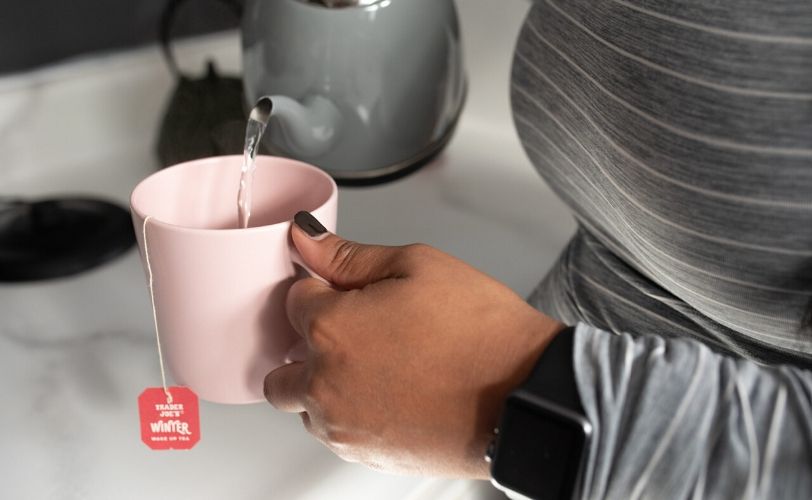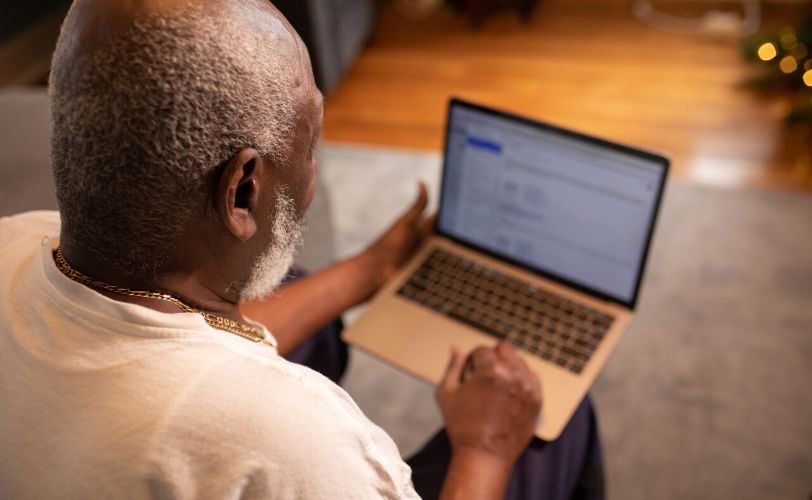Can hypnotherapy help me feel less lonely?
We may not like to admit it, but loneliness is a growing issue. Despite being more connected than ever thanks to smartphones, tablets, social media, more of us are reporting feeling disconnected from those – and the world – around us.

According to research released in early 2020, two thirds (64%) of Brits have felt lonely during the past year. For younger generations, those levels have risen to an overwhelming 82%.
Due to lockdown regulations, nearly a quarter (24%) of all adults reported feeling lonely in April 2020 according to the Mental Health Foundation, with a significant number of 18-24 year olds (44%) saying they were struggling with loneliness during this turbulent time.
If you’re struggling to reach out or aren’t sure how you can overcome loneliness, things can begin to quickly feel overwhelming. With so much going on in the world right now, speaking up about feeling lonely can feel selfish or even silly. As hypnotherapist Hazel Jones explains, we may even feel ashamed to admit how we are feeling to ourselves – let alone others.
“We pretend it isn’t happening, cover it up, bury it, deny it, distract ourselves from it – anything to avoid admitting that we’re suffering; that we’re lonely. Confessing to being lonely can feel like admitting that you’re a failure, that there’s something wrong with you. But why is this the case? Loneliness is very common and part of the human experience.
“According to many experts, loneliness is not necessarily about being alone, but about feeling alone and isolated, never mind where you are or who you are with. Loneliness is about the loss of connection – to others and ourselves. Perhaps the loneliness is only transient, and you get over it and get on with your life. But if you have been lonely for a while, or you feel lonely at least once a week, then please do something about it.”
Ongoing feelings of loneliness can come with an increased risk of premature death, can impact us just as much as other well-known risk factors such as smoking or clinical obesity, and has been shown to be associated with increased risk of heart disease, strokes, high blood pressure, cognitive decline, depression, and more.
Alone or lonely: what’s the difference?
There are thought to be two kinds of loneliness – social (when we lack friends or a wider social network), and emotional (when we miss a particular person such as a sibling, best friend, or partner). Craving human interaction is natural; while we may enjoy some time alone (it can often be a positive, restorative experience that helps us feel calm and energised), loneliness is different. It isn’t a choice.

No matter why you feel lonely – be it from the loss of a loved one, recently moving house, going to university or making a career change, health problems impacting your social life, or something else – it’s important to remember that we are all vulnerable to feeling lonely. There isn’t something wrong with you for feeling this way.
How can hypnotherapy help with loneliness?
Hypnotherapy is all about changing habits that are having a negative impact on your life. With the help of a hypnotherapist, you can lessen symptoms, improve self-perceptions, and reframe automatic negative thoughts about yourself, situations, or others.
Loneliness and disconnection from the world around you can be a symptom of depression. Often characterised by a low mood over a prolonged period of time, depression is thought to be one of the most common mental health issues worldwide alongside anxiety, affecting an estimated one in six. Common symptoms can include loss of self-esteem and self-confidence, a loss of interest in activities you previously found enjoyable, and increased feelings of anxiety, helplessness, or hopelessness – all of which can create an overall sense of loneliness and isolation.
Feeling lonely does not necessarily mean you are depressed: it is always important to speak with your GP if you think you may be experiencing depression or any mental health problems. However, an increased sense of loneliness and isolation can be a sign of deeper issues.
Similarly, low self-esteem (how we perceive ourselves) can lead to negative self-thoughts and feelings. The worse we feel about ourselves, the less likely we are to feel ‘worthy’ or ‘good enough’ to reach out, meet new people, and make connections. How we view ourselves can have a huge impact on how we interact with the world around us – including other people.

Low self-confidence can also lead to us feeling more stressed, anxious, and unhappy – impacting how able we feel to interact with others, cope with change or even social situations. In a similar way, past relationship issues – be they romantic or platonic – can lead us to create negative associations, making us warier of putting ourselves out there, meeting new people, and making new connections.
Working with a hypnotherapist can help you to open up to positive change. Through using positive affirmations, visualisation, and planting suggestions to your unconscious mind, you can begin to rebuild your self-esteem and confidence, identify any negative associations or automatic negative thoughts that may be harming your ability to make new connections, and help you to reconnect with yourself and your needs.
Hypnotherapy can help you to rediscover your strength and increase your sense of resilience, helping you to identify underlying issues you may not realise have been impacting your ability to reach out and feel more able to make connections.
Your hypnotherapist may also be able to introduce you to self-help tips that can help you to make small but impactful changes to boost your self-esteem. They may also be able to teach you simple self-hypnosis techniques you can practise between sessions to help reinforce the positive affirmations and suggestions being made during hypnotherapy sessions.
Is there evidence hypnotherapy can help?
Research into hypnotherapy for self-esteem suggests that hypnosis can offer a positive way of challenging and overcoming negative self-talk, as well as having the potential to improve our sense of self-worth.
A 2004 study into self-hypnosis and self-esteem revealed that those who used self-hypnosis reported overall higher levels of self-esteem than those who did not, while a 2008 study showed an improvement in self-perception amongst college students who used hypnosis to improve their self-esteem.
No matter what issue or problem you are seeking help with, it’s important to note that hypnotherapy can only have a positive impact when approached with an open mind.
Find out more about low self-esteem, low self-confidence and how hypnotherapy can help. Or use our advanced search to find the right hypnotherapist for you.
To find out more about how you can look after yourself, make new connections, and learn how to open up, check out this advice from Counselling Directory.

Find a hypnotherapist dealing with Depression
All therapists are verified professionals





